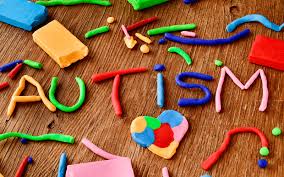Every year on April 2nd, the world comes together to observe World Autism Awareness Day (WAAD)—a global initiative dedicated to promoting acceptance, inclusion, and advocacy for the rights of individuals with autism. Since its establishment by the United Nations in 2007, this day has served as a platform to raise awareness about autism spectrum disorder (ASD) and the need for a more inclusive society. In 2025, the theme for World Autism Awareness Day is “Advancing Neurodiversity and the UN Sustainable Development Goals (SDGs).” This theme highlights the importance of recognizing and promoting neurodiversity while aligning efforts with the broader objectives of sustainable development.
Understanding Autism and Neurodiversity
Autism spectrum disorder (ASD) is a developmental condition characterized by differences in communication, social interaction, and behavior. Individuals on the autism spectrum often exhibit unique learning styles, strengths, and challenges. However, societal misconceptions and systemic barriers frequently limit their opportunities for education, employment, and social participation.
The concept of neurodiversity, first introduced by Australian sociologist Judy Singer in the late 1990s, recognizes that neurological differences—such as autism, dyslexia, dyspraxia, and ADHD—are natural variations of the human brain. Neurodiversity challenges traditional deficit-based perspectives and promotes acceptance, valuing the strengths and contributions of individuals with diverse cognitive profiles.
The Need for Awareness and Advocacy
Despite significant progress in fostering inclusion, many autistic individuals still face discrimination, limited access to essential services, and a lack of understanding in workplaces and educational institutions. Autism awareness initiatives are crucial in addressing these challenges and ensuring that autistic individuals receive the necessary support to thrive.
The 2025 theme—“Advancing Neurodiversity and the UN Sustainable Development Goals (SDGs)”—underscores the critical role of inclusivity in global development. The SDGs, adopted by the UN in 2015, aim to address pressing social, economic, and environmental challenges. Advancing neurodiversity aligns with several SDGs, particularly those focused on quality education (SDG 4), decent work and economic growth (SDG 8), reduced inequalities (SDG 10), and good health and well-being (SDG 3).
Why Inclusion Matters for Sustainable Development
1. Education and Learning Opportunities (SDG 4): Many autistic individuals struggle to access quality education due to rigid curricula and a lack of accommodations. Promoting inclusive education ensures that neurodivergent students can learn in environments tailored to their needs.
2. Employment and Economic Participation (SDG 8): Workplaces that embrace neurodiversity benefit from innovative problem-solving and diverse perspectives. Encouraging employers to implement inclusive hiring practices can create more equitable job opportunities for autistic individuals.
3. Reducing Social Inequalities (SDG 10): Discrimination and societal stigma often exclude autistic individuals from full participation in their communities. Raising awareness and advocating for policy changes can help dismantle these barriers.
4. Access to Healthcare and Well-being (SDG 3): Many autistic individuals face difficulties in accessing healthcare services tailored to their needs. Enhancing healthcare policies and training medical professionals in neurodiverse-inclusive care can improve overall well-being.
Global Efforts and Community Engagement
In 2025, the United Nations, in collaboration with the Institute of Neurodiversity (ION) and other advocacy groups, continues to promote initiatives aimed at improving the lives of autistic individuals. ION, an organization run by neurodiverse individuals for neurodiverse individuals, strives to create an inclusive society where autistic people feel represented, empowered, and heard.
Governments, civil society organizations, and corporate entities are encouraged to implement policies that foster inclusivity in education, employment, and social services. Schools, workplaces, and healthcare providers must adopt neurodivergent-friendly practices, ensuring that autistic individuals receive the support they need to succeed.
Conclusion: A Call to Action
As we observe World Autism Awareness Day 2025, it is imperative that we move beyond mere awareness to active inclusion and advocacy. By aligning efforts with the UN Sustainable Development Goals, we can build a world that recognizes, respects, and nurtures neurodiversity. Individuals, organizations, and policymakers must work together to create equitable opportunities and ensure that autistic individuals are not only accepted but empowered to contribute meaningfully to society.
Through education, policy reform, and community engagement, we can transform the world into a place where every individual—regardless of their neurocognitive differences—has the opportunity to thrive.









